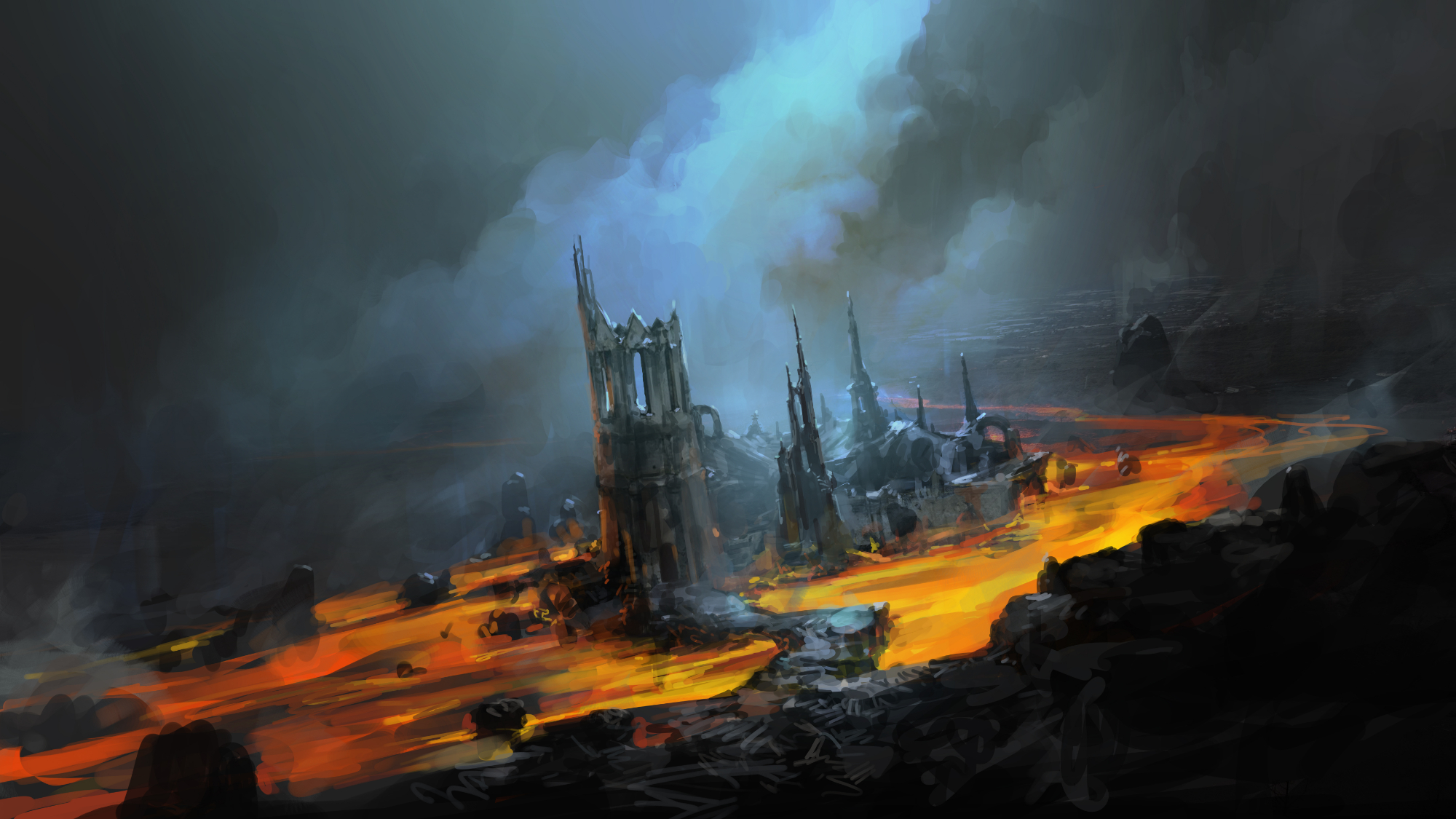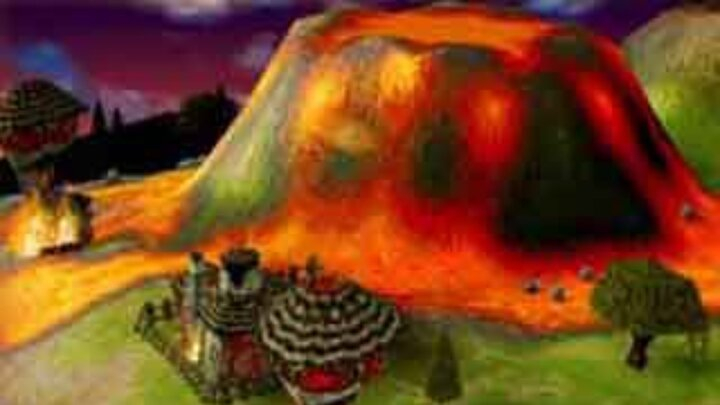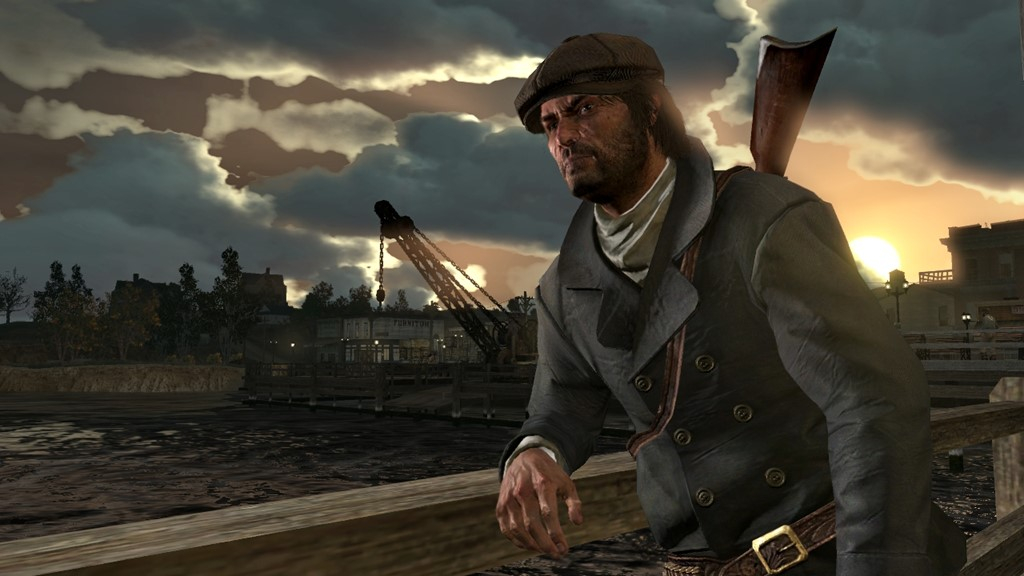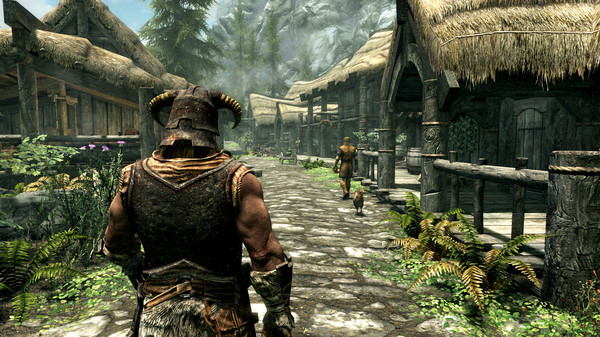Experience Points - Jeff Gardiner
Something Wicked Games founder shares the story of his life through games

Sign up for breaking news, reviews, opinion, top tech deals, and more.
You are now subscribed
Your newsletter sign-up was successful
Experience Points is a fortnightly chat with people in and around the games industry to talk about the most important games in their lives, whether that’s working on them, being inspired by them, or just playing them.
Everyone's journey into gaming and games is different; maybe you fell in love with the translucent Game Boy color, or you enjoyed spending Saturdays on the family PC playing Team Fortress 2. However, a great deal of people found their way into games thanks to Gary Gygax’s tabletop role-playing game Dungeons and Dragons (D&D).
“Growing up, I was the Dungeon Master for five other boys for years. I was a big deal geek. It was awesome because it taught me a lot about games, and it sort of set me on this path”, founder of Something Wicked Games, Jeff Gardiner, says. “If I ever give an award speech, I'm going to have to thank Gary Gygax, because if it weren't for him, I probably wouldn't be doing this.”
Gardiner found that opportunities to cultivate exciting stories from a young age, like those offered in D&D, drew him into the boundless world of games. After going to college to study creative writing, Gardiner spent his time bartending and eventually working on the shoe company Vans’ first website, before deciding to change paths and get a Master's degree in computer science and website building. However, to do so, he realized he had to own a computer - something he didn’t yet have. So, without wasting any time, Gardiner bought a computer from a local shop called Fry’s Electronics. However, this wasn’t all he bought: “Of course, the first thing I did was buy a game, Baldur’s Gate 2,” Gardiner admits.
Baldur’s Gate 2

After purchasing Baldur’s Gate 2 and his brand new computer, Gardiner decided to take a break from his studies and live what many gamers would consider a dream. “For a week, I would wake up in the morning, order two Domino's pizzas and just play Baldur’s Gate 2 all day,” Gardiner says. “I did this for nine days straight.” Sounds pretty good to me.
Even after 20 years, Gardiner still thinks about the stories in Baldur's Gate 2 and the manpower and creativity behind it
Over the course of nine days, the deep narrative and personal connections made in BioWare’s RPG, in particular, fascinated Gardiner. A different level of detail and agency comes with playing Baldur's Gate 2; the decisions you make can be detailed and have various intriguing repercussions on the story progression and the NPCs you’ll encounter. Those of you who have played the newest entry, Baldur's Gate 3, will know this well.
Even after 20 years, Gardiner still thinks about the stories in Baldur's Gate 2 and the manpower and creativity behind it. “Creativity is such an amazing skill that human beings have; imagination and creativity can transport people like nothing else.”
Sign up for breaking news, reviews, opinion, top tech deals, and more.
There’s also so much more to enjoy with 11 playable classes, dozens of subclasses, player voice lines to customize your character with, and the standard Shadows of Amn adventure plus an expansion, Throne of Bhaal. You can have endless fun and adventures with Baldur's Gate 2. These adventures don’t stop when you turn off your computer either; many of them will live on in your memory and imagination well after you move on to the next game. “It's funny to this day, I wonder why I love pizza so much, and it finally dawned on me that it’s because every Friday night when I’d play D&D, I would have freaking pizza.”
Populous

At first inspection, Populous and Baldur’s Gate 2 have nothing in common; one’s a D&D-inspired RPG, and the other is a complex God game - an artificial life game in which the player influences things on a large scale. Interestingly enough, instead of directly controlling the AI civilization in the game, you influence their decisions by doing godly acts such as spawning volcanoes or introducing plagues.
One memorable experience Gardiner had while playing Populous was desperately trying to look after his civilization without causing complete destruction. “To build land, you had to expand volcanoes - 'Oh, they're starving, they don't have enough crops, and I need more earth',” Gardiner explains. “The only way to make the earth is to spawn volcanoes, so you try to find a place on the map where you're not killing them.” It turns out that not smothering your people in volcanic ash and lava is more challenging than you’d expect.
However, Populous isn’t just a volcano simulator; there are some intriguing RPG elements as well. “I like what Peter Molyneux did with the RPG genre at the time, and he put a lot of very unbelievably cool mechanics in that game, him and his team, I should say.” Instead of the story being a straightforward role-playing game, it’s more mature and complex than that. “You're experiencing a story that you can sort of influence, but you're not in. The goal of Populous isn't really to win; it's to sort of see what happens.”
Red Dead Redemption

If you’re as big of a fan of gripping storytelling as Gardiner is, then you’ll probably agree that when it comes to an engaging narrative, Red Dead Redemption has one of the best.
You play as John Marston, a former outlaw whose wife and children are taken by the government and used as leverage to ensure Marston is used as a hired gun. With no other option, Marston is forced to bring three members of his former gang to justice.
“In Red Dead, there are not a lot of choices; they all lead you to the same outcome, which allows the game creators to make a really well-crafted story because you only have to account for all these little decisions. It’s well worth it though when you get to the penultimate scene”, Gardiner says.
This brilliant storytelling that Rockstar Games executed is something that Gardiner still thinks about to this day
That penultimate scene sees John Marston in a barn on his farmstead surrounded by U.S. Army Marshalls, having just helped your family escape. John stays behind to face each and every one of the Marshalls. As the scene draws on, you unload your barrel into the oncoming enemies, only to realize it’s all futile. “You start dry clicking, and your character starts getting hit with bullets, and you die. I was shocked,” Gardiner explains. “I get chills just thinking about it. I know it sounds strange because it's a video game, but I’m actually getting chills right now. I couldn't believe that after playing a character for 50 hours, you die and then come back as his son to go on the warpath.” This brilliant storytelling that Rockstar Games executed is something that Gardiner still thinks about to this day.
“Rockstar Games is fantastic. My biggest fear when I worked at Bethesda Game Studios was that Rockstar was going to decide to do a fantasy version of their game. We'd be trumped,” Gardiner admits. “I don't want to offend anybody, but man, put a sword in their hands and a horse, and that’s it. They can just do these details in games that are astounding.”
The Elder Scrolls V: Skyrim

Luckily, in the early-to-mid 2010s, Rockstar never made a trip into the fantasy world. Instead, Bethesda had a relatively free run at the genre. Spending more than 10 years working at Bethesda, Gardiner worked on some brilliant games, including The Elder Scrolls 4: Oblivion, Fallout 3, Fallout 4, and Fallout 76. However, only one of those has made his list of best games, and that, perhaps unexpectedly, is The Elder Scrolls 5: Skyrim.
“There's something so magical about Skyrim,” Gardiner points out. “I love Fallout. I worked on it for almost 10 years, but there's something about Skyrim. We were still small enough to really put in some amazing custom content, which was amazing.”
Looking back, Gardiner has tons of fond stories about his time working on Skyrim. There’s the ant story, in which a colleague not only decided to add thousands of ants into the RPG so players could experience realistic forests but subsequently added realistic shadows to each of them. This caused a mass of game-breaking outcomes, with no one being able to figure out why Skyrim wasn’t running correctly. Luckily, the team eventually found these destructive ants and put them to bed. “When you're talking about 12-year-old tech, you [have] to be very careful with shadow casting 1000s of ants that you couldn't even see,” Gardiner says.
There’s also the time when developers decided they wanted to add butterflies into Skyrim. These would flutter around and follow players who had flowers in their inventory. While it may seem like a lot of work, it was worth it in Gardiner’s eyes. “That's why I chose Skyrim. It's not about the end result of it being this amazing 60 million-unit-selling game,” Gardiner admits. “It's more about the memories I have of the cool things that folks were allowed to do in that game. Sometimes we had horrible game-breaking outcomes, but oftentimes, you either learn from them or end up with some really cool outcomes.”
The story continues

This creative freedom that Gardiner experienced while working on Skyrim is something that he has prioritized at Something Wicked Games, his new studio, and in the creation of the upcoming RPG Wyrdsong, set in Portugal and revolving around the mythos of the Knights Templar. “I wanted to create a safe space for creatives; that was my number one goal,” Gardiner says. “You do that by establishing trust, by allowing people to fail and not feel like they did something wrong, by people feeling comfortable throwing a terrible idea in the room, without any bad repercussions.”
I want to go to my nursing home knowing that I helped other people's careers
Jeff Gardiner
One idea that was allowed to blossom thanks to the supportive environment over at Something Wicked Games was the one that involved heating swords. While this may sound strange, the team working at Wyrdsong realized that players would fight numerous fiery enemies with an iron sword. So instead of simply adding blood splatter, the team wanted something more realistic and added sparks and flames, as well as a feature that allowed the sword to get hotter, which then meant players could build up fire attacks to use on other opponents.
It’s these small moments that Gardiner is most looking forward to seeing fully realized in the Wyrdsong. “I just want the devs to have as much fun as possible,” Gardiner concludes. “I want to go to my nursing home knowing that I helped other people's careers. I want to leave the people who come into my life a little better off; that's my goal.”
While we still have a while to wait until we get any more solid information about Wyrdsong, it’s safe to say that when it comes to storytelling and creative freedom, it's safe in the hands of Jeff Gardiner and Something Wicked Games.
Check out our list of best story games for even more fantastic titles, and if you've already played them, why not take a look at our best indie games list for some unknown gems?

Elie is a Features Writer for TechRadar Gaming, here to write about anything new or slightly weird. Before writing for TRG, Elie studied for a Masters at Cardiff University JOMEC in International Journalism and Documentaries – spending their free time filming short docs or editing the gaming section for their student publications.
Elie’s first step into gaming was through Pokémon but they've taken the natural next step in the horror genre. Any and every game that would keep you up at night is on their list to play - despite the fact that one of Elie’s biggest fears is being chased.